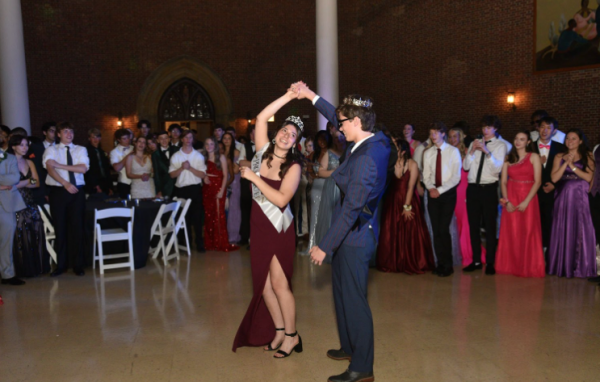In living memory
The history of women’s independence-and dependence- on men isn’t as old as we think


Federal judge Brett Kavanaugh’s confirmation hearing polarized the nation. People were outraged that the Republicans, the current majority party in Congress, could support a man who allegedly assaulted a woman. Several Republican senators including Lindsey Graham and Dean Heller believe the alleged assault is more or less irrelevant because it happened over 30 years ago, according to the Washington Post and Nevada Independent. But why do these men seem willingly to excuse Kavanaugh’s actions?
The answer is the same for why the Republicans generally don’t support the LGBT movement, abortion rights, or believe in the messages promoted by the current wave of feminists: they are old men. According to the Congressional Research Service, the average age for members of the House is 57, and 61 for senators. Only 20 percent of the members of the 114th Congress are women, and the Republican party only hosts 31 female members of Congress out of 307 (the Democrats have 84 out of 253, comparatively). These men grew up in a much more conservative period where the relationship between the sexes isn’t what it is today. While that doesn’t excuse their actions, it does offer an explanation to many Americans currently in disbelief with the Republican party.
In fact, it’s easy to forget how recent some changes to women’s civil liberties are. Before 1974, women didn’t have complete financial independence. If a woman wanted to open her own bank account, she’d need her husband or closest male relative to co-sign. Essentially, she’d need their permission. Also in the fiscal realm, the Equal Pay Act was passed only 11 years prior, demanding that employees with similar jobs should receive the same salary, regardless of gender. However, this area is still a point of contention, as the so-called “wage gap” still exists in America today, with women making about 78 cents to a man’s dollar. For women of color, the gap is even wider. Newsweek.com reported that a study by the Bureau of Labor Statistics found that in the 535 professions surveyed, women on average earn less than their male peers in all but two.
Equal access to education is a recent phenomenon too. Although women are earning undergraduate degrees at higher numbers than men according to the National Center for Education Statistics, the history of women and college education is complex. Women were accepted into women’s colleges and co-ed programs as early as the mid 1850s, but course options were limited to subjects such as teaching and childcare. It wasn’t until a century later that women could enroll in more STEM oriented programs like biology and engineering. Ivy league schools didn’t accept female students until the late seventies. The famous Title IX amendment wasn’t passed until 1972, outlawing gender discrimination in education as well as allowing for girls’ sports teams.
Most of these addendums to equality have happened within the last 60 years, during the lifetime of most everyone’s parents or grandparents. That also means that today’s politicians grew up in where things like a woman’s financial independence, educational opportunities, and occupational breadth weren’t the norm. It also serves as a reminder that equality is so much more that the right to vote, and that women’s rights isn’t a thing of the past, but rather living memory. And while these politicians may not live to see the next generation, they are making laws that right now that will affect our generation and the next. One such bill is HR 656, which gives states the option to exclude women’s public health providers such as Planned Parenthood from their Medicaid plans. It’s not enough to wait for the conservatives in government to die off in hopes that they’ll be replaced by more open-minded individuals. The only reason women and other activist groups have the rights they do now is because they fought for them. By becoming passive, we spit on the memory of every woman who fought for our rights, most of which are still alive today, and still fighting.





